 SHAKESPEARES FESTIVE COMEDY
SHAKESPEARES FESTIVE COMEDY
Shakespeares Festive Comedy
A STUDY OF DRAMATIC FORM
AND ITS RELATION
TO SOCIAL CUSTOM
C. L. Barber
With a new foreword by Stephen Greenblatt

Copyright 1959 by Princeton University Press
New foreword 2012 by Princeton University Press
Published by Princeton University Press, 41 William Street,
Princeton, New Jersey 08540
In the United Kingdom: Princeton University Press, 6 Oxford Street,
Woodstock, Oxfordshire OX20 1TW
press.princeton.edu
All Rights Reserved
First printing, 1959
First Princeton Paperback Edition, 1972
Paperback reissue, with a new foreword by Stephen Greenblatt, 2012
Library of Congress Control Number: 2010942114
ISBN 978-0-691-14952-3
British Library Cataloging-in-Publication Data is available
Publication of the original edition of this book was aided by the Ford Foundation program to support publication, through university presses, of works in the humanities and social sciences.
Printed on acid-free paper.
Printed in the United States of America
10 9 8 7 6 5 4 3 2 1
To
ALVIN BARTON BARBER
and
LUCY LOMBARDI BARBER,
my father and mother
and, in 1972
to the memory of my late beloved wife
ELIZABETH PUTNAM BARBER

CONTENTS
STEPHEN GREENBLATT
FOUR: PROTOTYPES OF FESTIVE COMEDY IN A PAGEANT
ENTERTAINMENT: SUMMERS LAST WILL AND TESTAMENT
FIVE: THE FOLLY OF WIT AND MASQUERADE IN
LOVES LABOURS LOST
SIX: MAY GAMES AND METAMORPHOSES ON
A MIDSUMMER NIGHT
SEVEN: THE MERCHANTS AND THE JEW OF VENICE:
WEALTHS COMMUNION AND AN INTRUDER
NINE: THE ALLIANCE OF SERIOUSNESS AND LEVITY
IN AS YOU LIKE IT
TEN: TESTING COURTESY AND HUMANITY
IN TWELFTH NIGHT

FOREWORD
STEPHEN GREENBLATT
It seems appropriate to begin with a festive moment of sorts, one about which I shared a laugh in the early 1970s with C. L. Barber himselfJoe, as his friends called him. (He was never comfortable with his first name, Cesar, though that name occasioned much amusement when in later life he married a woman named Cleopatra.) I was teaching at the time at the University of California, Berkeley, and my route to lunch every day passed through Sproul Plaza, a great open space that was the scene of innumerable rallies, protests, harangues, sit-ins, and riots. On days when the helmeted troops were not stomping around and the police helicopters were not circling overhead, Sproul Plaza became a kind of fairground, filled with jugglers, mimes, street poets, drugged-out hippies, leather-lunged evangelists, bongo-players, would-be revolutionaries, plainclothes policemen, gawking tourists, truant schoolchildren, and teenaged runaways, along with miscellaneous students, lab assistants, administrators, and bespectacled professors. The university tried at one point to limit access to the plaza and to ban much of the swirling life, but it found the task so fraught that it settled grudgingly, as a kind of safety valve, for limiting the noisiest activity to the midday hours. The temporal boundaries only intensified the holiday atmosphere, for festivity, as Barbers book makes clear, thrives on the constraints of form.
One day at lunchtime I was walking through Sproul Plaza in the company of a colleague who was describing a paper that she was writing on certain sixteenth-century representations of peasant life. My colleague, who combined a splendid energy, ambition, and fine intelligence marred only by an almost complete humorlessness, was explaining to me that scholarly accounts of these representations were all relentlessly moralizing. They stupidly treated as sober homiletical allegorieswarnings against idleness, drunkenness, and sexual licensewhat should in fact be interpreted as joyous celebrations of carnival. Unbeknownst to her, while she was making her points with characteristic vehemence and self-absorption, one of the denizens of the plaza had begun to walk directly behind her, miming her gait and her every gesture. The parody was deft and cruel, and the crowd, noticing what was going on, began to laugh. I had taken in the game, but I continued to attend to the argument my colleague was making. I thought that it would be more polite not to call attention to the mockery and hoped that we would cross the whole plaza without her noticing. To no avail: she stopped suddenly, in the midst of a sentence invoking Bakhtins account of Rabelais, and, rounding on the mime, of whose antics she must for some time have been aware, started shouting in a rage, Fuck you! Fuck you! Fuck you! The mime pretended to be frightened; the crowd roared with delight; and my colleague stormed off. We finished our conversation about carnival in the decorous quiet of a Japanese restaurant.
Barber understood the strain of cruelty that often attends saturnalia, but he routinely sided with the revelers against the killjoys. He did so not because he himself was cruelhe was in fact an uncommonly kind personbut because he treasured shared joy and laughter. His allegiance was at once instinctive and principled: he believed that the bonds of healthy communities were strengthened by their collective experience of festive liberty. Laughter was an agent of what Shakespeare called atonement, in the special sense of at-onement. Not everyone was incorporated into the spirit of fun: it is striking, Barber notes, that Elizabethans could laugh so readily at the discomfiture of the excluded and relish their suffering. It was not that the celebrants, at least the more sensitive of them, did not understand the human reality of those whom they mocked; rather, for the Elizabethan age, to understand did not necessarily mean to forgive (203). The vitality of the community, its release of Dionysian energy, and its experience of deep rhythms of natural renewal were paramount. Shakespeares Festive Comedy is a celebration of what for Barber was the highest accomplishment of this culture of carnival, the transformation of social ritual into enduring works of art.
Shakespeares Festive Comedy is that rarest of books: a work of literary criticism that has retained its freshness, vitality, and usefulness across a span of time that has doomed most other critical studies, even the most celebrated among them, to seem brittle and faded. First published more than fifty years ago, Barbers account of Shakespeares comedies, from Loves Labours Lost to Twelfth Night, manages to be richly insightful about particular comic masterpieces and to illuminate the entire culture from which these masterpieces arose.
That culture, Barber observes, was already in the process of bidding farewell to its time-honored popular pastimes. These pastimes, seasonal rituals embedded in the communal lives of country towns and villages, were under attack from preachers and moralists who charged, not without justification, that such practices as dancing around the Maypole or feasting the Lord of Misrule were hopelessly tainted with paganism. The festive games might at first glance look charming enough, but they in fact lured rustic revelers away from the church, corrupted morals, awakened sexual excitement, and licensed inferiors to flout their social betters. In the 1590s, the enemies of festivity were still a small faction, associated with nascent Puritanism, and, as tensions steadily mounted between the established church and its ideological enemies, powerful forces organized themselves to defend and support the old customs. But popular holidays that are the carefully crafted expressions of a reactionary government program are already compromised, and it would not be long before those holidays were reduced to a party emblem.
Next page

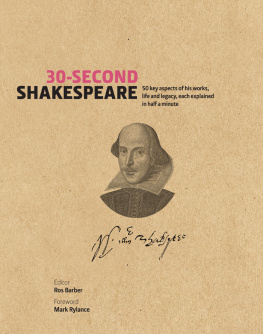
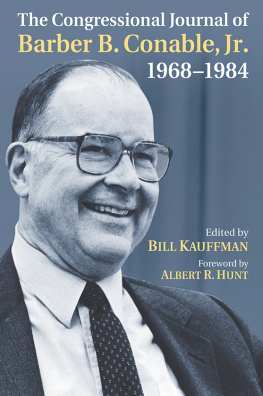


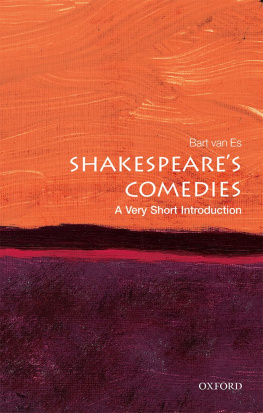
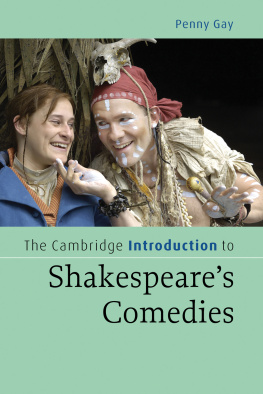

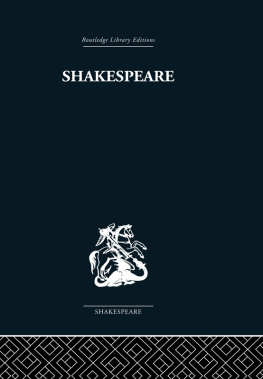
 SHAKESPEARES FESTIVE COMEDY
SHAKESPEARES FESTIVE COMEDY